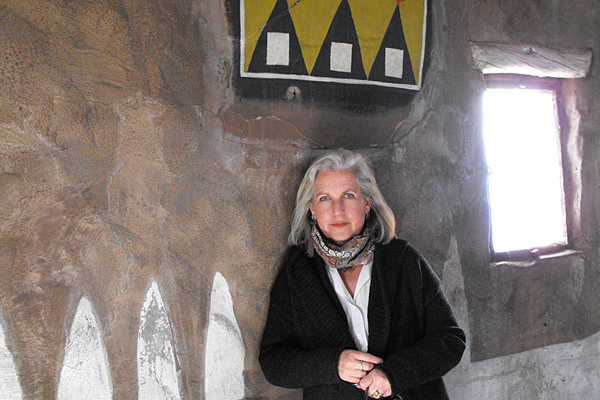
Feb. 28: DENIN Dialogue series
Writer, conservationist, advocate Terry Tempest Williams to speak at UD
9 a.m., Jan. 24, 2012--Terry Tempest Williams, renowned environmental writer and the Annie Clark Tanner Scholar in Environmental Humanities at the University of Utah, will be the featured speaker in the Delaware Environmental Institute’s DENIN Dialogue Lecture Series on Tuesday, Feb. 28, in Mitchell Hall at 7 p.m.
The series, hosted by the Delaware Environmental Institute (DENIN), brings experts in environmental research and policy to the University of Delaware's Newark campus and is free and open to the public.
Events Stories
June 5: Blue Hen 5K
June 6-9: Food and culture series
Co-sponsors of the event include the College of Arts and Sciences and its Environmental Humanities Initiative, the Department of English and the Honors Program. This program is partially funded by a grant from the Delaware Humanities Forum, a state program of the National Endowment for the Humanities.
McKay Jenkins, Cornelius Tilghman Professor of English and author of What’s Gotten Into Us? Staying Healthy in a Toxic World (Random House, 2011), will interview Williams on stage. Because of this live interview format, the public is invited to submit questions for Williams ahead of time through DENIN’s Facebook and Twitter accounts or via email.
Following the interview, audience members will be able to engage Williams in an open question and answer session and a book-signing opportunity. Several of her books will be available for purchase at the event.
During her talk, Williams is expected to address her personal background and process as a writer, the value of individual and communal expression in resolving conflict and the importance of communication between scientists, humanists and the public. In addition, she may touch on questions of history, ethics, religion, philosophy and public policy.
Though best known for her literary works, Williams cannot be categorized as a writer only. She also has been an outspoken advocate for environmental conservation, free speech and women’s health issues, nationally and internationally.
Her best-known work, Refuge: An Unnatural History of Family and Place, was listed as one of 12 classics of nature and environmental writing by the Association for the Study of Literature and Environment (ASLE). The book is a memoir that weaves together the stories of her mother’s cancer diagnosis with the flooding of the Bear River Migratory Bird Refuge, a tributary of the Great Salt Lake.
Williams has published 16 books, including, An Unspoken Hunger: Stories from the Field; Desert Quartet; Leap; Red: Passion and Patience in the Desert; The Open Space of Democracy; and Finding Beauty in a Broken World. Her next book, When Women Were Birds, will be published in spring 2012 by Farrar Straus & Giroux.
Williams is also a columnist for the magazine The Progressive. Her writing has also appeared in The New Yorker, The New York Times and Orion Magazine.
In 2006, Williams received the Robert Marshall Award from the Wilderness Society, their highest honor given to an American citizen, as well as the Distinguished Achievement Award from the Western American Literature Association. Additionally, in 2005 she was presented the Wallace Stegner Award by the Center for the American West. Williams is the recipient of a Lannan Literary Fellowship and a John Simon Guggenheim Fellowship in creative nonfiction.
Article by Brittany Barkes
Photo by Louis Gakumba








